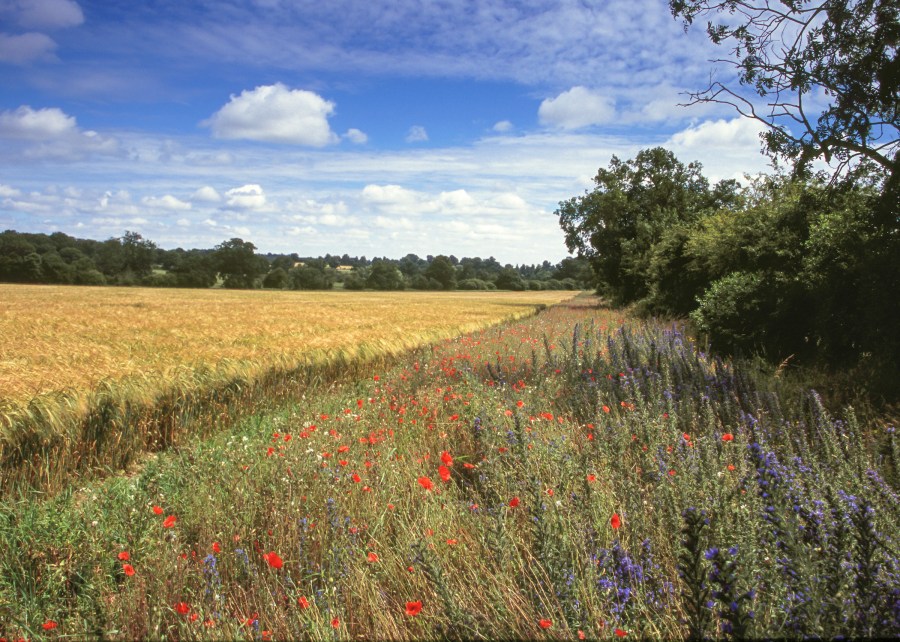Farmers will receive increased payments for protecting and enhancing nature and delivering sustainable food production under the Government’s Environmental Land Management schemes, Defra has announced today (5 January 2023).
Speaking at the Oxford Farming Conference, farming minister Mark Spencer announced more money for farmers and landowners through both the Countryside Stewardship and the Sustainable Farming Incentive schemes. He also confirmed an expanded range of actions under the schemes, which farmers could be paid for, would be published soon.
SFI changes
The changes mean farmers could receive up to a further £1000 per year for taking nature-friendly action through the SFI.
This new Management Payment will be made for the first 50ha of farm (£20/ha) in an SFI agreement, to cover the administrative costs of participation and to attract smaller businesses – many of whom are tenant farmers – who are currently under-represented in the scheme, said Defra. SFI is already paying farmers to improve soil and moorlands, and an expanded set of standards for 2023 will be published shortly, it said.
CS changes
In addition, farmers with a CS agreement will see an average increase of 10% to their revenue payment rates – covering ongoing activity such as habitat management. Defra is also updating capital payment rates, which cover one-off projects such as hedgerow creation, with an average increase of 48%.
Other schemes
Meanwhile, capital and annual maintenance payments for the England Woodland Creation Offer (EWCO) and Tree Health Pilot (THP) will also be updated this year, helping to incentivise farmers to incorporate more trees as a valuable natural resource on farms, said Defra.
“My challenge to our great industry is simple – this year, take another look at the Environmental Land Management schemes and think about what options and grants will help support your farm,” said the minister. “As custodians of more than 70% of our countryside, the nation is relying on its farmers to protect our landscapes as well as produce the high-quality food we are known for, and we are increasing payment rates to ensure farmers are not out of pocket for doing the right thing by the environment.
“By increasing the investment in these schemes, I want farmers to see this stacks up for business – whatever the size of your holding.”
Industry response
Responding to the news, president of The Country Land and Business Association said the announcement shows the government is ‘listening and adapting to the concerns of farmers’.
“It reduces uncertainty, supports proper valuations and creates stronger incentives for a wider range of farms to enter into the schemes. All this is to be welcomed, but everything is moving too slowly. We have had many promises of improvements in the future, but what we desperately need are details of payment rates and standards for 2023, particularly for the Sustainable Farming Incentive.
“We believe government’s policy on Environmental Land Management schemes to be potentially world-leading, but we need a world-leading government operation to underpin it. Defra is doing good work, they just need to do it more quickly.”
However, NFU vice president David Exwood said he feared it was ‘too little, too late’.
“I regret that farmers and growers are making crucial long-term decisions that are essential to running viable and profitable food producing businesses without the vital clarity needed on ELM schemes and options that will be available.
“While some of these latest changes are welcome, including enhanced payments for farmers and landowners through the Countryside Stewardship scheme and the introduction of a Sustainable Farming Incentive management payment, it risks being too little too late, especially given the current economic challenges we are experiencing and the rapid erosion of direct payments.
“It is hugely frustrating that nearly five years on from Defra’s Health and Harmony consultation, which set farming in England on a path towards public goods for public payments, we still only have three standards available for the SFI. It’s a sad reflection of the scheme’s progress and development that NFU members know more about what they will lose in direct payments than what they will gain from taking part in these new schemes.
“The NFU has always been very clear; for the ELM to succeed it needs to be simple, provide certainty and fairly reward farmers for taking part. This means schemes that are inclusive and available to every farm business – whether upland or lowland, tenant or owner-occupied – with a range of practical and profitable options available through a ‘foundation’ SFI standard to ensure the high uptake needed so these schemes have the desired impact. Ministers must also demonstrate transparently how direct payments have been redirected to the ELM programme.”




